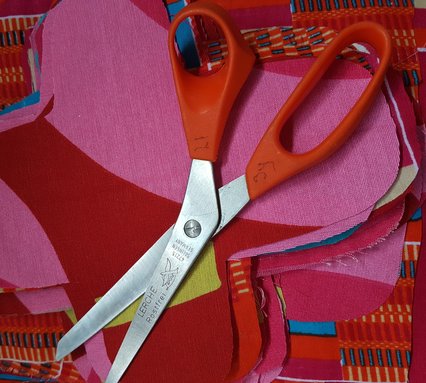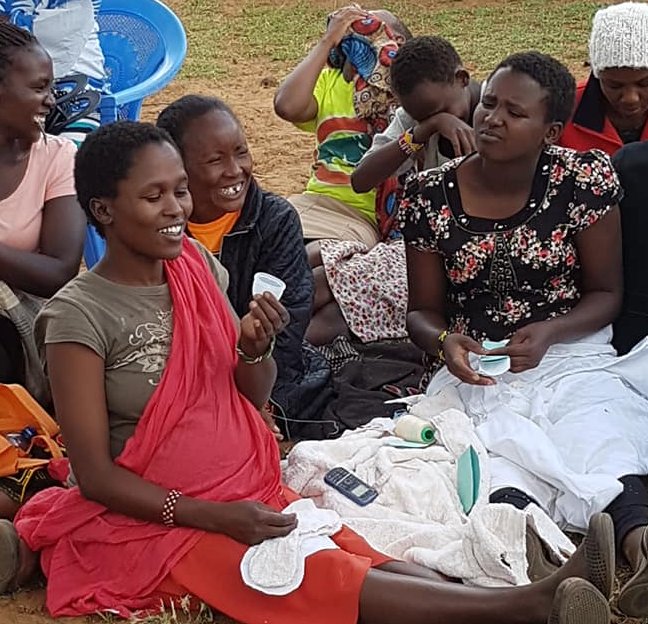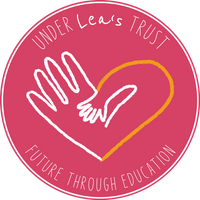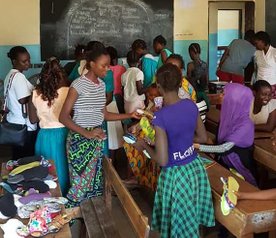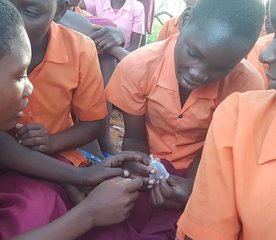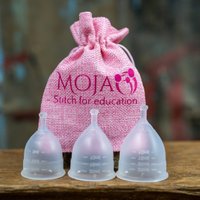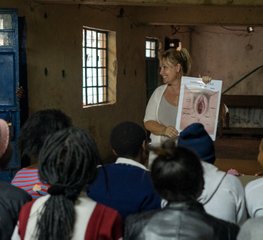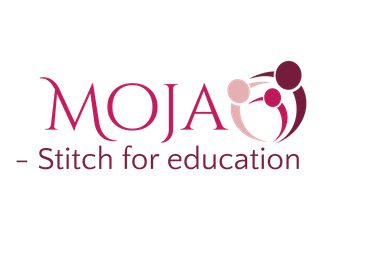Because everyone deserves
equal opportunities
SPONSOR
Moja - Stitch for education
__________________________
Sponsor a child to education
for only 108 euro per year
This organization aims to promote the general societal understanding of menstruation and the problems it causes, especially to teenage girls in the 3rd world.
We are currently working to raise the self-esteem of menstruating school girls in Kenya by sewing and donating reusable pads, talking to-
and teaching them about all the taboo-covered topics that no one else teaches them, such as sex education, HIV/AIDS, FGM, and how to avoid teen pregnancies, so they remain in school and complete their education.
The organization met at least 6 of UN’s Sustainable Development Goals, there aim to end poverty, protect the planet and ensure prosperity for everyone by 2030, among them fight against poverty, good health, proper education, gender equality, responsible consumption and partnership with other organizations.
As a woman in the Western world, having your period is mostly really annoying, but rarely an obstacle for going to school and getting an education. To imagine growing up in a world where menstruation is a taboo that nobody talks about, and at the same time making the
girls feel ashamed and humiliated, will make most of us get defensive.
This has resulted in a huge support for our project, with a desire to help sewing and donate pads from women from all parts of Denmark.
With this organization we hope to get many more from all over the world to help us, so that we can help even more girls in Kenya to finish
their education.
You can read more about all our projects on this site.
Our projects
_____________
____________
Reusable pads
There are currently more than 400 women helping me to sew reusable pads to donate to school girls in Kenya.
They contribute with both material and time, and without them this project would not be possible. I have currently donated over 4000 pads and made life a little easier for more than 400 girls in the slums and rual areas.
Most people live for less than $ 1 a day in the slums, so when a girl is menstruating, there is no way that she can afford to buy a package of pads, since these cost mostly more than $1. Therefore, most women use old blankets, old clothes or any fabrics that they can find. Sometimes they are lucky to get a packet of pads donated by a local NGOs. But these are never enough to keep them safe throughout their menstruation. They often wear the same pad the whole day, so it starts to smell. Therefore, the boys can "smell" when a girl has her period, and tease and mock the girls. Because of this, many choose to stay home from school or completely drop out.
If you love to sew and want to make a difference for girls in the third world, join our sewing group on Facebook. Here you can find patterns and get ideas. You don’t need any experience, since skills are quickly mastered through practice, and you can always get help in the group.
____________
Menstrual cup
Although we mainly sew and donate reusable pads for the school girls, we strongly beleive that the best solution for the young women in Kenya and in any other country in the world is to use a menstrual cup. Unfortunately, the price of a cup is so high that it is unattainable for the majority of women in Africa.
Moja found a manufatorie there can make theme both cheap and safe for affordable price. So far we have successfully donated almost 1000 cups to school girls and young mothers, both in slums and remote villages. It may not sound like much, but for these women it has made a world of difference.
We have managed to find solutions to all the challenges that the women encountered with the use of the cups, such as toilet conditions, lack of water and pots to clean them in. We even got a cup design safe for use by girls, who still virgin, because that is a big ubstacle in Kenya. I always follow up and have a contact person who is experienced in using the menstrual cup.
____________
Sexual education
When we donate reusable pads to the school girls, we always follow up with detailed sex education. Also for the boys, who have an equally need for knowledge, about protection, equality and rape statistics. This also helps to protect the girls. When possible, we also distribute con-doms, as the majority of all new cases of AIDS / HIV are young girls. Unfortunately, it is often impossible for the boys to get hold of condoms, as clinics around Kenya often refuse to hand out the free condoms to young boys, perhaps in the belief that they will not have sex then?
In Kenya, everything is taboo and no one talks to children about anatomy, sex or menstruation.
Therefore, when a girl gets her period for the first time, she often believes that she is sick or even dying. I teach the girls about hygiene and the menstrual cycle, how to get pregnant and how to avoid it. I do not preach "no sex before marriage", as it is not a viable option.
The Kilifi area north of Mombasa, 3624 girls were reported as pregnant while taking their exam in 2018.
I teach them how vulnerable they are if they have sex without a condom, as most of the new cases of AIDS / HIV are young girls are from unprotected sex. I tell them how and where to turn to if they have been subjected to rape. A staggering 33% of the girls in Kenya will experience rape before the age of 18. These worrying numbers is an indication that women's rights do not exist in large parts of Africa.
____________
FGM/CUT
Female genital mutilation (FGM) is a ritual practiced in many African countries, where whole or parts of the female genitals are cut. It is a very common ritual for the transition from child to woman, to which more than 200 million women worldwide are exposed to. In Kenya, FGM became illegal in 2011, but the small tribal communities still practice the ritual in a large style. The small tribal community’s lives far away from other populations and metropolitan areas, and everyday life is driven by individual culture. Because of the illegalization, they do not have access to sterile tools, which is why the ritual is performed under poor, unhygienic conditions. It takes place completely without anesthesia or painkillers and many bleed during the procedure.
FGM is a ritual in which the health, humanity and serious consequences of the circumcision itself are overshadowed for the benefit of the culture. Women suffer with severe sequelae from the circumcision - everything from chronic pain, blood poisoning, difficulty in giving birth that can lead to stillborn children, urination problems and much more. More than 40% of women over 45 are circumcised in Kenya. It is most prevalent in desolate areas where the population does not have access to education.
Our ambition is to reach out to these areas to share knowledge and make a difference. It is a difficult and time-consuming project that requires close collaboration with the locals, because each tribe has their own language and culture that we must familiarize ourselves with prior to teaching.

